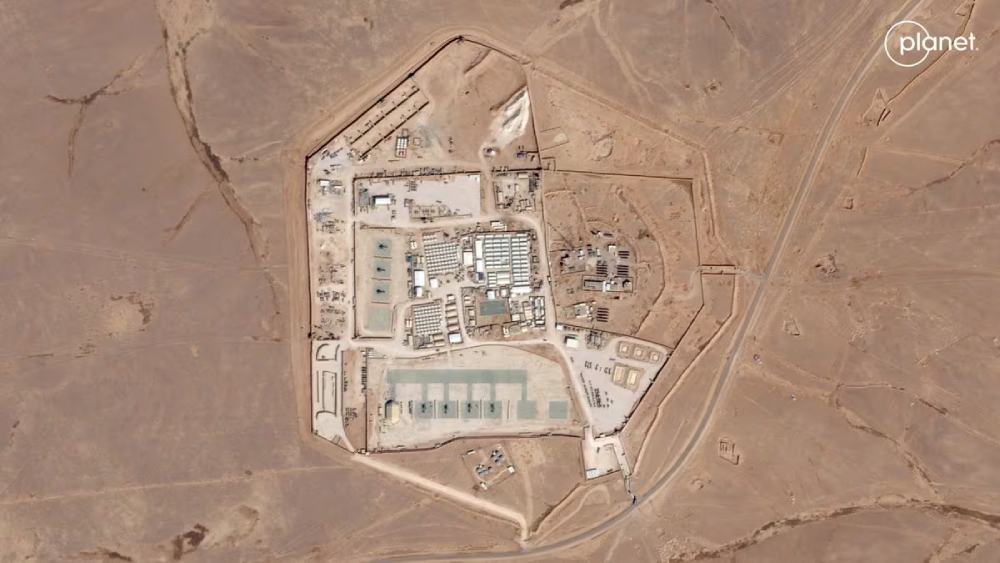Biden faces pressure to strike Iran after US troops killed


WASHINGTON — The killing of three US troops and wounding of dozens more on Sunday (Jan 28) by Iran-backed militants is piling political pressure on President Joe Biden to deal a blow directly against Iran, a move he's been reluctant to do out of fear of igniting a broader war.
Biden's response options could range anywhere from targeting Iranian forces outside to even inside Iran, or opting for a more cautious retaliatory attack solely against the Iran-backed militants responsible, experts say.
American forces in the Middle East have been attacked more than 150 times by Iran-backed forces in Iraq, Syria, Jordan and off the coast of Yemen since the Israel-Hamas war erupted in October.
But until Sunday's attack on a remote outpost known as Tower 22 near Jordan's northeastern border with Syria, the strikes had not killed US troops nor wounded so many. That allowed Biden the political space to mete out US retaliation, inflicting costs on Iran-backed forces without risking a direct war with Tehran.
Biden said the US would respond, without giving any more details.
Republicans accused Biden of letting American forces become sitting ducks, waiting for the day when a drone or missile would evade base defences. They say that day came on Sunday, when a single one-way attack drone struck near base barracks early in the morning.

In response, they say Biden must strike Iran.
"He left our troops as sitting ducks," said Republican US Senator Tom Cotton. "The only answer to these attacks must be devastating military retaliation against Iran's terrorist forces, both in Iran and across the Middle East."
The Republican who leads the US military oversight committee in the House of Representatives, Representative Mike Rogers, also called for action against Tehran.
"It's long past time for President Biden to finally hold the terrorist Iranian regime and their extremist proxies accountable for the attacks they've carried out," Rogers said.
Former President Donald Trump, who hopes to face off against Biden in this year's presidential election, portrayed the attack as a "consequence of Joe Biden's weakness and surrender".
The Biden administration has said that it goes to great lengths to protect US troops around the world.
One Democrat openly voiced concern that Biden's strategy of containing the Israel-Hamas conflict to Gaza was failing.
"As we see now, it is spiralling out of control. It's beginning to emerge as a regional war, and unfortunately the US and our troops are in harms way," Democratic Representative Barbara Lee said, renewing calls for a ceasefire in the Israel-Palestinian war.
Democratic Representative Seth Moulton, who served four tours in Iraq as a Marine, urged against Republican calls for war, saying "deterrence is hard; war is worse".
"To the chicken hawks calling for war with Iran, you're playing into the enemy's hands — and I'd like to see you send your sons and daughters to fight," Moulton said. "We must have an effective, strategic response on our terms and our timeline."
Experts caution that any strikes against Iranian forces inside Iran could force Tehran to respond forcefully, escalating the situation in a way that could drag the US into a major Middle East war.
Jonathan Lord, director of the Middle East security programme at the Centre for a New American Security, said striking directly inside Iran would raise questions for Tehran about regime survival.
"When you do things overtly you represent a major escalation for the Iranians," Lord said.
Charles Lister of the Washington-based Middle East Institute said a likely response would be to go after a significant target or high-value militant from Iran-backed groups in Iraq or Syria.
[[nid:668952]]
"What happened this morning, was on a totally different level than anything these proxies have done in the past two to three months... [but] despite all of the calls to do something in Iran, I don't see this administration taking that bait," Lister said.
A US defence official, speaking on the condition of anonymity, said it was unclear what the second and third order effects would be in going after Iran.
"Unless the US prepared for an all out war, what does attacking Iran get us," the official said.
Still, Lord and other experts acknowledge that Israel had hit Iranian targets in Syria for years, without dissuading Iran, including four Iranian Revolutionary Guard Corps officials in Damascus on Jan 20.
The US has also struck Iranian-linked targets outside of Iran in recent months. In November, the US military said it struck a facility used not only by Iran-backed group but also by the Iran's Revolutionary Guard Corps.
But Lister said the US had gone after Iranians outside of Iran in the past, like the 2020 strike against top Iranian general Qassem Soleimani, and only yielded a response during a limited period of time.
"So to an extent, if you go hard enough and high enough, we have a track record of showing that Iran can blink first," Lister said.
ALSO READ: 3 US troops killed, up to 34 injured in Jordan drone strike linked to Iran